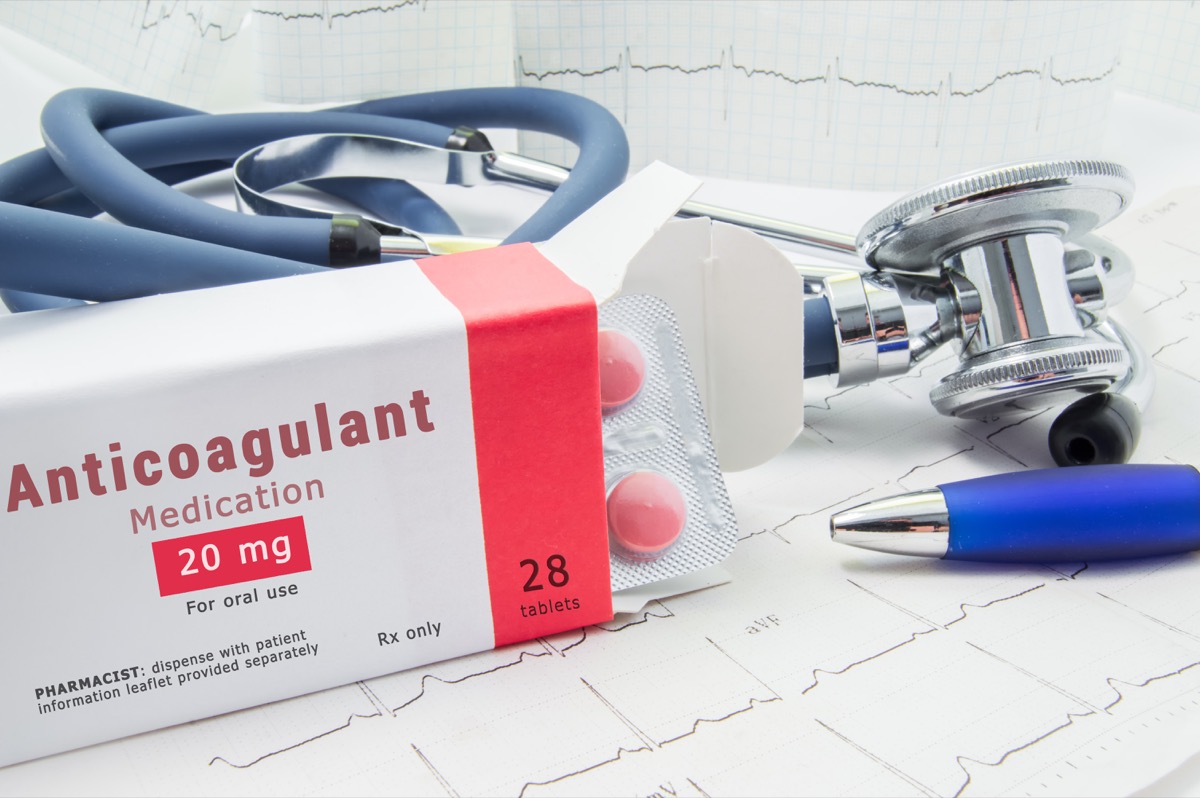The study, published Aug. 26 in the Journal of the American College of Cardiology, observed the health records of more than 4,000 adult coronavirus patients admitted to Mount Sinai hospitals in New York City between March 1 and April 30. Researchers found that the usage of any amount of anticoagulants—otherwise knowns as blood thinners—which slow down your body’s ability to form blood clots, increased COVID patients’ chance of recovery, compared with those who didn’t use these medications. In fact, patients on both a full dose of anticoagulants, referred to as a therapeutic dose, and those on a lower dose, referred to as a prophylactic dose, showed around a 50 percent increase in the chance of an in-hospital recovery from the coronavirus. Also compared to those not on the medication, those with either dosage had about a 30 percent lower chance of being placed on a ventilator.ae0fcc31ae342fd3a1346ebb1f342fcb Among all study participants, 1,073 (24.4 percent) died during the study period, 2,892 (65.9 percent) were discharged alive, and 424 (9.7 percent) were still hospitalized at the time the study ended. According to the results, of the 2,892 patients that were discharged alive, 931 were from the group who hadn’t take any dose—therapeutic or prophylactic—of blood thinners, compared with 1,961 patients on either dose of the medication. “Clearly, anticoagulation is associated with improved outcomes and bleeding rates appear to be low,” Anu Lala, MD, co-author for the study and director of heart failure research at the Icahn School of Medicine at Mount Sinai, said in a statement. RELATED: For more up-to-date information, sign up for our daily newsletter. The observational study was conducted after researchers saw a pattern of blood clots being in those who had died from COVID-19. A study published June 25 in The Lancet showed the results of autopsies conducted on seven COVID patients and found blood clotting in multiple organs. In addition, a recent Imperial College London study from Aug. 20 found that out of 10 coronavirus patient autopsies, nine had blood clots in at least one major organ. However, Lala did note that this observational study was just a stepping stone for further research in the future. “As a clinician who has treated COVID-19 patients on the front lines, I recognize the importance of having answers as to what the best treatment for these patients entails, and these results will inform the design of clinical trials to ultimately give concrete information,” she said. And for more research on coronavirus survivors, check out 60 Percent of COVID Survivors May Be Dealing With This Forever, Study Says.
